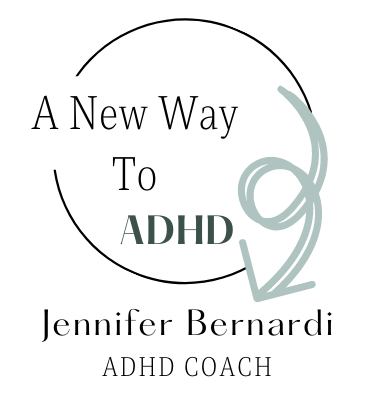
In early sessions with new coaching clients, I often hear the same painful questions: “Why am I such a mess?” or “How do I fix my ADHD?” These questions come from a place of frustration and self-blame—and they keep people stuck. The real shift begins when we start asking better questions—ones that move the focus from shame and overwhelm to curiosity, clarity, and strategy. That’s where effective ADHD management begins.
Questions that Support Effective ADHD Management
Questions to Build Self-Awareness
- What am I feeling right now, and why?
- When do I feel most focused or productive?
- What situations tend to trigger overwhelm or avoidance?
- How does ADHD show up for me (e.g., time blindness, emotional reactivity, distractibility)?
Why these questions evoke change?
Developing deeper self-awareness about how ADHD shows up in your life and how it impacts you is a powerful first step toward managing it with intention. It means noticing your patterns without judgment — understanding when and why you struggle, what environments help you thrive, and how your unique brain responds to pressure, structure, and stimulation. This insight becomes the foundation for making smarter choices, building supportive systems, and advocating for what you need.
2. Questions to Support Planning and Prioritizing
- What’s the actual next step I need to take?
- What would “done” look like for this task?
- What’s most important — not just urgent — right now?
- What’s one small action I can take today?
Why these questions evoke change?
Planning and prioritizing can be especially challenging for the ADHD brain. Learning to break tasks into manageable steps, define what ‘done’ actually looks like, and distinguish between what’s important versus what’s simply urgent can make a significant difference. Without this clarity, tasks often feel too big, vague, or overwhelming — leading to procrastination or paralysis. Building these skills takes practice, but over time, they help reduce mental clutter and create a greater sense of control. Small wins in planning can lead to big shifts in confidence and momentum.
3. Questions to Manage Time and Energy
- How long do I think this will take? How long does it actually take?
- What time of day do I usually have the most energy or focus?
- Do I need a break or a body double right now?
- Am I underestimating how much energy this task requires?
Why these questions evoke change?
When you struggle to evaluate time effectively, it affects your ability to plan, prioritize, and pace yourself, making it harder to complete tasks efficiently. In addition to time management challenges, people with ADHD often struggle to manage their energy. Learning to ask the right questions—like when your energy peaks and when it needs to be conserved—can boost productivity and help prevent burnout.
4. Questions to Reduce Shame and Self-Criticism
- What would I say to a friend in my situation?
- Is this a motivation problem — or an executive function barrier?
- What systems (not just willpower) could support me here?
- How can I make this easier or more fun?
Why these questions evoke change?
Years of living with unmanaged ADHD can lead to deep feelings of shame and self-criticism. When the world sends negative messages about productivity, focus, or motivation, it’s easy to internalize those judgments and mistake executive function challenges for personal failures. Over time, this can erode self-esteem and create a harsh inner critic. Changing the narrative to one of compassion and understanding is a vital step toward healing and growth.
5. Questions for Reflecting and Learning
- What kind of support would help me move forward?
- What worked for me today?
- What didn’t work — and why?
- What can I try differently next time?
Why these questions evoke change?
Reflecting on what worked and what needs to be adjusted helps shift us out of all-or-nothing thinking and into a growth mindset. Mistakes become opportunities for learning rather than evidence of failure, and self-compassion becomes a tool for resilience. This kind of reflection supports progress over perfection and reinforces the idea that managing ADHD is a process, not a quick fix. Over time, it builds confidence, insight, and the ability to adapt with greater ease.
Not sure if you are ready for coaching? Take this quiz to find out!



